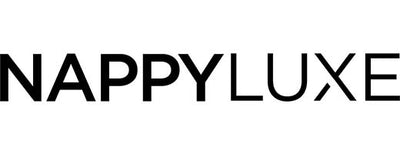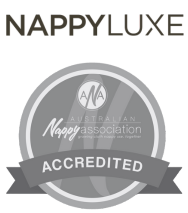5 Ways To Be More Environmentally Friendly [Reduce Your Family’s Household Waste]

Starting a family is an exciting new venture, but as you bring a new little person into the world, it’s also a good time to start thinking about how you can be more environmentally friendly, reduce your household waste, and build a sustainable future for your prodigy.
This may come as a surprise to some, but having children is actually pretty bad for the environment. Each new person brought into the world consumes food and water, produces waste, requires toys, clothing, bedding, furniture, school supplies, the list goes on.
Of course, your little Einstein may go on to reverse climate change and save our planet from global warming, but until then, we need to think carefully about every item we place in the rubbish bin destined for landfill.
What’s bad about landfill?
In most first world countries such as Australia, everything we put in our general waste bin goes to landfill.
These are large trenches in the ground where all rubbish is crushed, placed inside and covered with soil.
Landfills produce harmful gasses as everything buried withing slowly rots, which contributes to climate change.
They can also be responsible for polluting the surrounding earth and waterways which creates another environmental hazard.
As the population of planet Earth continues to grow, so does the volume of rubbish going to landfill and the need for more landfill sites.
This is why there’s no better time than when becoming a parent to start to think about how to reduce the amount of much rubbish we send to landfill.
Our top 5 ways to reduce your family’s household waste
1. Opt for reusable cloth nappies instead of disposables
In the US, 2% of all landfill is made up of disposable nappies. Each baby will get through around 6,000 nappies before toilet training age. Combine this with the fact that disposable nappies are made of plastic and are estimated to take up to 500 years to decompose... There’s no denying that disposable nappies are truly awful for the environment.
Modern cloth nappies on the other hand are easily washed in the washing machine and reused time and time again, and even passed on to the next child and beyond.
By using cloth nappies instead of disposable nappies, you are significantly reducing the amount of waste you’re putting in your rubbish bin each week, whilst saving money in the long run.
Check out our cost comparison of disposable nappies vs cloth nappies for more info about how much you could save.
2. Consider other reusable or eco-friendly items you can start using in your home
Similarly to nappies, it’s amazing how many everyday items are “single use”, and that using these over reusables has become the norm in recent years. There are so many amazing reusable products that often work better, save you money, and reduce your household waste. We also love products that are made with compostable materials, so that when they do come to the end of their life, they can be placed in your home compost. Here’s a few of our favourite eco-friendly items for parents of young children:
- Reusable food pouches like these ones from Sinchies. Rather than buying stacks of yogurt pouches for your tiny tots during your weekly food shop, you can instead opt to buy a single large pot of yogurt to decant into these reusable pouches. Or better yet – try making your own yogurt. That’s not all these pouches are handy for, use them for snacks, sandwiches or leftovers and save the need to buy single use.
- Reusable breast pads like these ones from Milky Goodness. If you're breastfeeding, you’ll be familiar with the uncomfortable feeling that an untimely letdown can cause. Keep your clothes dry and milk-free with reusable breast pads that are simply popped in the wash and reused instead of disposable ones.
- Reusable menstrual cups or pads such as these ones from JuJu. Most Australian women are in the habit of using disposable tampons or sanitary pads, but it doesn’t have to be this way. The cup in particular minimises washing and so is especially eco-friendly. Team it with a reusable pad that’s easily washed in your washing machine and you’re good to go when your time of month comes around.
- Eco-friendly black out blinds such as these ones from Mahalo Eco Blinds - it's no secret that a lot of babies sleep better with black out blinds. Sadly, most black out blinds are made with plastic and can release chemical smells. Mahalo Blinds are both compostable and won't release any harmful chemicals within your precious baby's sleep area.
- Reusable baby bamboo cloth wipes - these can be used for faces, bums, and anything in-between. Use them for messy play clean ups, bath time, or after baby led weaning messy mealtimes. Don't stop there, pinch them for yourself and use them to softly remove your make up after a long day.
3. Compost
Another great way to reduce your weekly waste is to compost. This can either be a home compost system, a compost collection service, or you can drop off your compost to a council community compost center.
Simply buy yourself a small compost bin for your kitchen, some compostable bags (not to be confused with biodegradable, which cannot be home composted!) and away you go.
Here are some examples we’ve come across to help you on your way to composting:
- Home compost system such as subpod. You simply place your subpod in your garden and with the power of worms and adding your food scraps, you soon have fresh organic fertiliser to allow your plants to flourish.
- Compost collection service such as Going Green Australia in Brisbane. When you sign up to a subscription with this service, you’re provided with your kitchen compost bucket of a suitable size for your household, and they take care of weekly collections. They use all the collected compost to xxxx.
- Compost drop off – there are multiple community composting hubs in most council areas that allow you to drop off your compost waste. You can even be rewarded by getting back nutrient-rich mulch for your garden. Here’s a list of the Brisbane based community compost centers.
Regardless of whether you decide to compost or not, another idea is to mindfully reduce the amount of food wastage your family produces.
Cue the laugh from the parents of a fussy eating toddler.
Even if you do have a toddler who loves to throw their food on the floor, there are still ways to reduce the amount of food wastage through what you buy, how you store it and what you cook.
Nearly a third of food produced in the world is said to be thrown away. Not only is this taking up space in your weekly household waste, but it’s an unnecessary expense you can no doubt do without. Furthermore, once this food has gone to landfill and started to rot, it releases methane which contributes to climate change.
The best ways to reduce your food wastage include:
- Make use of what you’ve got before buying anything new
- Plan meals ahead as much as possible
- Store food sensibly to avoid it going bad too quickly
- Portion control – only serve up a suitable sized portion, and take these portion sizes into account as you start cooking
- Batch cook and freeze suitable sized portions
- Freeze leftovers
4. Recycle
Ensuring that you are recycling the right materials is probably the easiest way to reduce the amount of household waste you are sending to landfill. These are the types of materials that most commonly can be placed in your recycling bin:
- Paper and card – old cards, newspapers, toilet rolls, cereal packs, magazines, pizza boxes, junk mail, and more can all be given a new lease of life and used to create recycled products.
- Glass – any empty bottles or jars, just don’t try to recycle shattered glass from drinking glasses or any ceramics as these can’t be accepted. Correctly recycled glass can be turned into new food and drink containers, as well as used to create asphalt mix for roads.
- Metal – such as aerosol cans and aluminum cans can all be recycled into new packaging.
- Plastic – most hard plastics are okay to recycle, but soft plastics such as bags and food wrappers should all be taken to dedicated soft plastic drop off points such as in your local supermarket.
Incidentally, if you’re already a pro-recycler and find you often run out of space in your recycle bin, many councils allow you to upgrade to a larger recycling bin – often free of charge.
5. Fix or clean things rather than binning
One of the most wasteful habits that many parents adopt as their baby grows and starts toilet training, is to throw soiled clothing in the bin. This is unnecessarily wasteful, as clothing can always be washed even after heavy soiling (just like nappies!) and can be good as new again.
This same mindset should apply to everything in your household – before chucking it away consider whether it can be fixed, cleaned, repurposed, or passed on to someone else who may have the skills to revamp. After all, “one person’s rubbish is another person’s treasure”.
Holey socks and underwear for example (or any other clothing that’s not suitable for any other purpose) can be given to H&M’s garment collecting program. These items are shredded into textile fibres and reused for insulation materials.
In summary
As you can see, there are numerous ways to start reducing your household waste. If it feels like a lot of changes to make, then we suggest starting a bit at a time.
Start reducing your family's household waste today by purchasing a cloth nappy bundle today.
Meet the Author
Natalie Lassen

Natalie, Founder of NappyLuxe, is an eco-conscious mother and entrepreneur who discovered the benefits of cloth nappies for her family and the environment. With a mission to create the ultimate cloth nappy, she spent years researching and testing various designs before launching NappyLuxe - a range of high-quality, easy-to-use, and ultra-absorbent cloth nappies. Natalie is passionate about sharing her experience and expertise, helping parents make informed decisions and embark on their own sustainable parenting journey.
Blog posts
How To Use Wool Nappy Covers At Night (Benefits & Wash guide)
Best Cloth Nappies Australia [What Features Do Top Brands Have In Common]
The 5 Top Uses For Cloth Wipes Revealed
Get 10% off your first order
Plus get notified about promotions, new releases and journal updates.





















